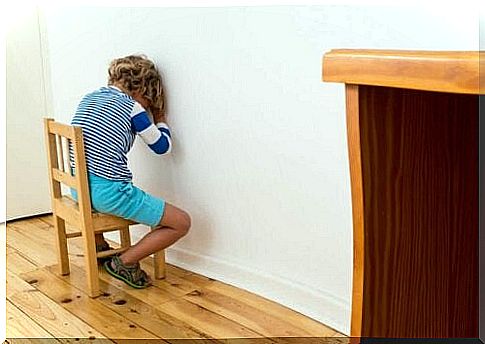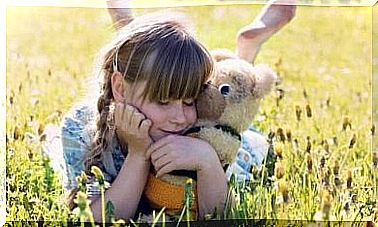How To Educate Without Reinforcement Or Punishment According To The Montessori Method

We are sure that, as mothers, you have happened to stop and think about the most correct method to educate your child. Will reinforcements and punishments be a positive or counterproductive system? Let’s see what the Montessori method says about how to educate without reinforcement or punishment.
Perhaps you have sometimes asked yourself these questions about the education of your children: “If when my child does something bad and I punish him, am I making him more insecure?” . But then you think, “But if he does things right and I offer him reinforcement, maybe he will go back to repeating this behavior or positive action just to get the reward . “
According to the Montessori Method, we can educate without reinforcement or punishment. Read on – you may find this article helpful.
Educating with the Montessori methodology, without reinforcement or punishment
Organize the home environment
In Montessori education, it is very important to prepare the home so that the child can learn independently through real experiences.
It is important to establish this from an early age, during which the child makes contact with the world around him. At an older age he will need materials to learn numbers and letters. All of this is essential to develop his innate curiosity.

Give him the autonomy he needs
Accompany your child in his learning. Give them the leeway they need to develop their autonomy, make their mistakes and learn from them. Mistakes will be necessary in order for him to learn to get by in the real world with ease, both in childhood and throughout his adult life.
Without reinforcements or punishments, but not without consequences
After we have established the basis for educating children according to the Montessori methodology, we can move on to talking about reinforcement and punishment. This method, based on respectful education, provides that we must not mention the word “reward” or “punishment” under any circumstances.
Instead, we need to talk about the consequences that derive from the actions of children. For example, in case your child doesn’t want to pick up toys after playing.
- Punishment : “You did not collect the toys when you were supposed to and, for this reason, you will not be able to watch television and you will go to bed early.”
- Reinforcement : “Since you have collected everything after playing, I allow you to watch some television before going to bed.”
- Consequence : “If you pick up the toys after you have finished playing, you will have time to watch some television. If, on the other hand, you take them all out without picking them up, in the end it will take you longer and you won’t have enough time left to watch television, and it will be time to go to sleep ”.
The example makes it clear that, in the end, the result we will achieve will be the same. If the child does what he has to do he will be able to watch television before going to sleep, but if he does not, he will not be able to see it because he will not have enough time left.
What changes, in this case, is the way we communicate it to them. In this way, he will not see the situation as an imposition, but as something that must be done in order to have enough time left to be able to watch television or play with his parents.
Advantages of educating without reinforcement or punishment
It increases its self-motivation
It is the child who decides by himself to take an action: he does not do it because someone has told him several times. In this way, his self-discipline, his sense of responsibility and his self-motivation receive a considerable boost.
Increased his satisfaction
When he realizes that he is performing routine actions without the presence of punishment or reinforcement, he feels very proud and satisfied with himself.

The individual abilities of the child are stimulated
Educating through the consequences is a great help in stimulating his abilities. In this way we are offering them the greatest possible autonomy.
His self-esteem increases
Consequence education has been shown to greatly help children gain self-esteem and self-confidence.
Strengthening cooperation
When they do the tasks they are able to do at their age, children feel cooperative. This aspect strengthens family communication, affection and cooperation.
As you can see, educating using the Montessori methodology means educating a child who is happy, confident and with great self-esteem and the feeling of being able to help his parents alone. Without reinforcement or punishment, but not without consequences, it is possible to offer a good education, as you have seen by reading this article. What is the path you intend to take?









